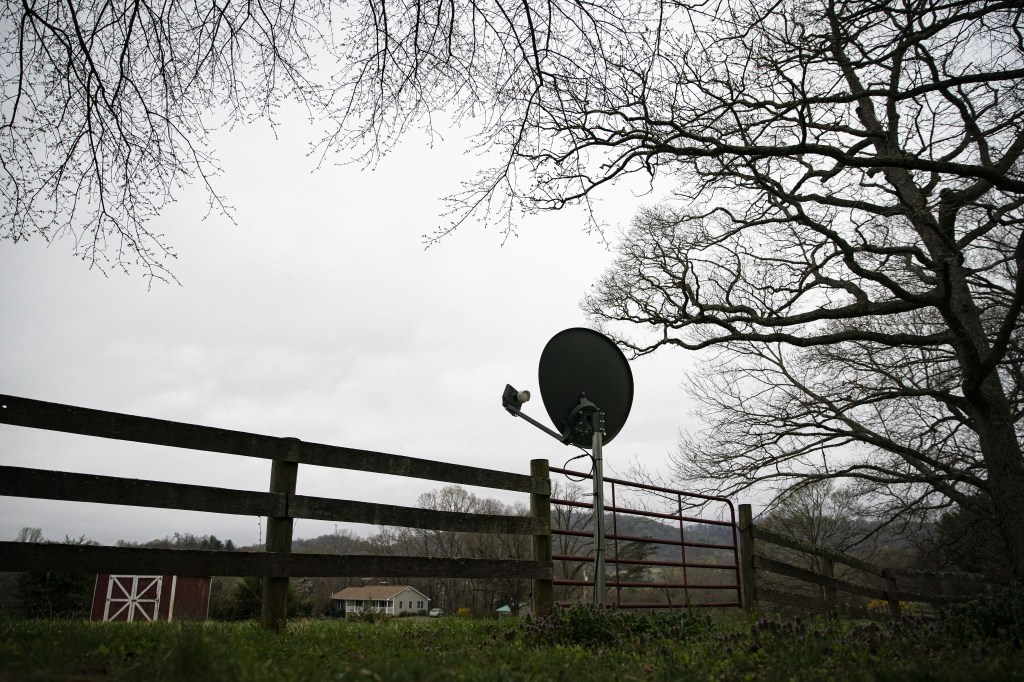To hear wireless carriers tell it, fifth-generation (5G) wireless is going to revolutionize the planet by fueling the rise of smart cars, smarter cities, and countless innovative new technologies.
While 5G will deliver faster and better mobile networks, however, experts say that most of the ultra-futuristic benefits of 5G have been absurdly overhyped by wireless carriers.
Videos by VICE
For example, Verizon—whose patchy 5G network has only just started coming online—has claimed in recent marketing that 5G will revolutionize health care by facilitating next-generation surgery tools, as well as VR and AR based diagnostic imaging. Other ads go even farther. A new Verizon promotional video features cancer patient testimonials set against a backdrop of emotional music, before claiming that Verizon’s 5G network will “give doctors the ability to fight cancer like never before.”
While 5G will certainly deliver better wireless connectivity in general, experts consulted by Motherboard say that in reality, hospitals are not likely to make use of 5G networks for most diagnostic and treatment procedures.
“The use of mobile connectivity such as 4G is rare in medical devices or diagnostic equipment because hospitals have traditionally relied on local connections as the primary architecture for their vast networks,” Dameff said. “WiFi and Ethernet currently simplifies disparate system integration, scales better, and is the status quo over most of the healthcare industry in the United States.”
“We should take the money spent on these well-produced commercials touting medical advantages of 5G and donate them to cancer research”
Dameff noted that while 5G (like 4G before it) may have some use in terms of helping first responders and doctors in the field transfer data more quickly, Verizon’s claims that 5G will revolutionize medicine in the hospital itself were “largely overblown.” Claims that 5G will impact cancer treatment in any serious way should be taken with several grains of salt, he said.
“I do not see any significant cancer breakthroughs being dependent on 5G,” Dameff said. “In my opinion, we should take the money spent on these well-produced commercials touting medical advantages of 5G and donate them to cancer research. That would help cancer patients more than 5G itself.”
Ernesto Falcon, a lawyer and telecom expert at the Electronic Frontier Foundation, shared Dameff’s skepticism about Verizon’s 5G claims as they pertain to health care.
“It seems more hype that a hospital or other medical institution would rely on a private carriers’ wireless product when reliability, high capacity, and consistency will be the most important things for risky healthcare procedures,” he said. “In a competitive environment where fiber is more ubiquitous, I do not see any reason a medical institution wouldn’t just pick fiber to the building as their primary service.”
When asked to comment on the accuracy of its marketing around 5G networks, Verizon stuck to its guns.
“We do think 5G technology will revolutionize medicine, and a variety of other industries,” a company spokesman told Motherboard. “It’s brand new technology—Verizon’s 5G Ultra Wideband network has only been launched in a few cities—and it will continue to get better over time. Solutions that seem impossible today—like using AR/VR imaging to fight cancer—could become commonplace tomorrow.”
But Dameff suggested that Verizon’s marketing was more about shaping Verizon’s public image and wooing policymakers than accurately predicting the future of medical technology. “5G has some hurdles in the public relations and policy world and I imagine these types of commercials are aimed at changing public opinion on the issue,” he said.
Verizon took significant PR heat last summer when it violated its own policies by throttling firefighters’ “unlimited” 4G wireless connections as they battled the largest wildfire in California’s history. When firefighters called Verizon to complain that their connections had been throttled to dial-up speeds, the company tried to upsell them to a more expensive plan.
While there’s certainly plenty of benefits in having faster, more reliable cellular networks when 5G arrives at scale (something most experts say is still several years away), 5G should be seen more as a modest evolution, not a revolution. 5G is not magic.
5G won’t eliminate the high prices that plague the US wireless sector, or the regulatory capture that has resulted in apathy to consumer privacy issues. And contrary to what Verizon is claiming in its ads, it’s not likely to play a major role in fighting cancer, either.
Listen to CYBER, Motherboard’s new weekly podcast about hacking and cybersecurity.




